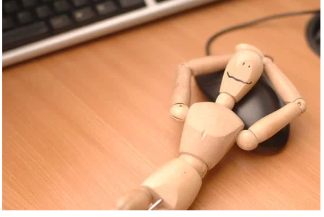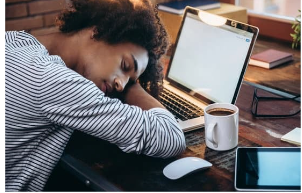
Let us first define ‘stress’ to be on same page:
Stress is a normal part of life and is a natural response to various challenges or pressures. When you experience stress, your body goes into “fight or flight” mode, releasing hormones like adrenaline and cortisol to help you respond to the perceived threat. This physiological response prepares you to take action, whether that is to run from a dangerous situations or to focus and perform well on a task.
Chronic stress can lead to a host of physical symptoms, such as headaches, muscle tension, fatigue, and digestive issues, as well as emotional symptoms like anxiety, depression, and irritability.
It is important to recognize the signs of stress and to find ways to manage and relieve it. This can involve a combination of lifestyle changes, such as exercise, relaxation techniques and good self-care practices.
A large body of research suggests that increased stress levels interfere with your ability to deal with physical illness. By reducing stress, you can improve your overall well-being and quality of life
Here are 8 options you can consider to manage your stress, feel free to choose one or a combination of methods.

1. Exercise regularly:
One of the simplest and most effective ways to reduce Stress in regular physical activity. Exercise can also reduce anxiety, help sleep better and improve your overall sense of well-being. (Volumes have been written about exercises so I will stick to the bullet points)
Here are a few simple exercises:
- Walking: A brisk walk is a great way to relieve stress and improve your physical health. You can walk outside, in a park, or on a treadmill.
- Stretching: Stretching can help relieve tension in your muscles and reduce stress. You can do simple stretching exercises anywhere, anytime.
- Dancing: Dancing is a fun way to relieve stress and get your body moving. Turn on some music and dance around your living room, or take a dance class.
- Running, Jogging and Aerobic exercises : Running, jogging, cycling, jumping jacks, jump rope are a great ways to relieve stress and improve your cardiovascular health.
- Tai Chi: Tai Chi is a slow and gentle form of exercise that combines physical movements with breathing and meditation techniques to reduce stress and improve overall well-being.
The key is to find an exercise that you enjoy and that you can easily incorporate into your daily routine.
2. Living every day by your Value system:

Examining your values and living by them is an important part of maintaining good mental health and well-being. Values are the beliefs, attitudes, and principles that you hold most important in your life. When you align your actions with your values, you feel more connected to what is truly important to you and more in control of your life.
Here are some steps to help you examine your values and live by them:
- Identify your values: Make a list of the things that are most important to you in life, such as family, health, honesty, and career.
- Prioritize your values: Once you have identified your values, prioritize them in order of importance. This can help you focus on what is truly important to you.
- Reflect on your actions: Take a moment to reflect on your actions and ask yourself whether they align with your values. If not, consider making changes to bring your actions in line with your values.
- Set goals: Set goals that are aligned with your values, and make sure you are working towards them on a daily basis.
- Surround yourself with supportive people: Surround yourself with people who share your values and who will support you as you work towards your goals.
By examining your values and making them a priority in your life, you can create a sense of purpose and direction that can help you navigate life’s challenges with greater ease.
3. Deep breathing exercises:
Deep breathing is a simple and effective way to reduce stress and anxiety. It helps to slow down your breathing rate, which can help you relax and calm down.
- Belly Breathing: Lie on your back or sit comfortably with your back straight. Place one hand on your belly and the other on your chest. Inhale slowly and deeply through your nose, feeling your belly rise as you fill your lungs with air. Exhale slowly through your mouth, feeling your belly fall. Repeat for several minutes.
- Count breathing (4–7–8 Breathing): Sit comfortably with your eyes closed and your hands on your knees. This exercise involves inhaling for 4 counts, holding your breath for 7 counts and exhaling for 8 counts. Repeat this pattern several times.
Another variation is Box Breathing: Inhale for 4 counts, hold your breath for 4 counts, exhale for 4 counts and hold your breath for 4 counts. Repeat this pattern several times, focusing on your breath and relaxing your body.
Remember, the key to deep breathing exercises is to focus on your breath and let your thoughts drift away. You can practice these exercises anywhere and anytime, and they are a great way to reduce stress and promote relaxation.
4. Meditation and mindfulness practices:
Mindfulness meditation can help you become more aware of the present moment, which can help you manage stress and anxiety. It can also improve your sleep, concentration, and overall well-being.
- Body Scan Meditation: Lie down or sit comfortably, and close your eyes. Start at the top of your head and focus your attention on each part of your body, noticing any sensations or tension. Allow any tension to release as you focus on each part of your body.
- Guided Meditation: There are many guided meditations available online or through apps that can help you get started with meditation. You can choose a guided meditation that focuses on stress relief or relaxation, and simply follow the instructions.
- Mindful Breathing: Sit comfortably and focus your attention on your breath. Whenever your mind wanders, gently bring it back to your breath. You can use counting, visualization, or simply focus on the sensations of your breath to stay present.
Remember, the key to these practices is to be patient and persistent.
5. Reduce triggers of stress — too many demands and too little time!
You can free up time by practicing time-management skills like setting priorities, pacing yourself and reserving time to take care of yourself.
It is ok to say “no” to demands on your time and energy that may place too much stress on you. You don’t always have to meet others expectations. Be mindful of the things you can control and work on accepting things not in your control.
6. What is biofeedback?

Biofeedback is a type of therapy that uses monitoring devices to measure physiological signals, such as heart rate, breathing rate, muscle tension, and skin temperature and provide the information to the individual in real-time. The goal of biofeedback is to help individuals become more aware of their body’s unconscious responses to stress and to teach them techniques to regulate these responses.
What is Biofeedback used for?
Biofeedback can be used to treat a range of conditions, including chronic pain, headaches, high blood pressure, anxiety, and depression. It is also used to improve sleep quality, athletic performance, and overall well-being.
Biofeedback therapy:
Biofeedback therapy is typically done with a trained therapist, and it can be combined with other forms of therapy, such as cognitive-behavioral therapy or mindfulness practices. The results of biofeedback can be long-lasting and sustainable, and it is generally considered a safe and non-invasive form of therapy.
7. Take breaks and practice self-care:

Taking breaks and practicing self-care can help you recharge and reduce stress. Whether it’s taking a walk, reading a book, or getting a massage, taking care of yourself can be a great way to relieve stress.
8. Get enough sleep:

Lack of sleep can increase stress and anxiety levels, so it is important to get enough sleep each night. Aim for 7–9 hours of sleep per night and try to establish a consistent sleep schedule.
Here are a few tips on getting enough sleep:
- Stick to a schedule: Try to go to bed and wake up at the same time every day, even on weekends. This helps regulate your body’s internal clock and improve the quality of your sleep.
- Create a bedtime routine: Establish a relaxing bedtime routine, such as reading a book or taking a warm bath, to help you unwind and signal to your body that it is time for sleep.
- Limit caffeine and alcohol: Caffeine and alcohol can interfere with your sleep quality, so try to avoid consuming these substances before bedtime.
- Create a sleep-conducive environment: Make sure your bedroom is cool, dark, and quiet. Use earplugs, a sleep mask, or white noise if necessary to block out light and noise.
- Reduce screen time: The blue light from electronic devices, such as smartphones and laptops, can interfere with your sleep, so try to limit your screen time in the hours before bed.
- Practice relaxation techniques: Techniques like deep breathing, meditation, and progressive muscle relaxation can help you relax and fall asleep faster.
- Exercise regularly: Regular exercise can help you sleep better, but avoid vigorous exercise close to bedtime.
Note: Everyone’s sleep needs are different, so it is important to experiment and find what works best for you. If you are having trouble sleeping, consider seeking the advice of a doctor or sleep specialist.
What is a Powernap?

A power nap is a short nap taken during the day to help improve alertness and cognitive performance. Power naps are typically 15–30 minutes in length and are taken in the early afternoon, when most people experience a natural dip in energy and alertness. The idea behind a power nap is to take advantage of this lull in energy to recharge and refresh the mind and body.
Studies have shown that power naps can help improve memory, mood, alertness, and cognitive performance, making them a useful tool for boosting productivity and reducing stress.
Always seek professional help:
If stress and anxiety are affecting your daily life, it is important to seek professional help. A mental health professional can help you develop coping strategies and provide support as you work to reduce stress and improve your overall well-being.
Note: My intent with my writings is to create health awareness. Please always consult a medical professional before consuming anything. Thank you for reading.
